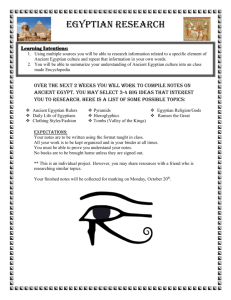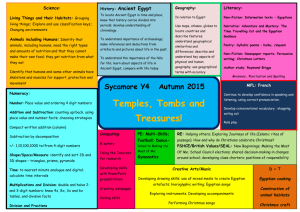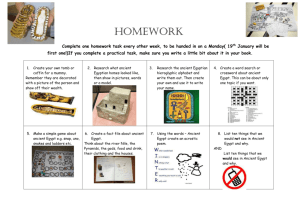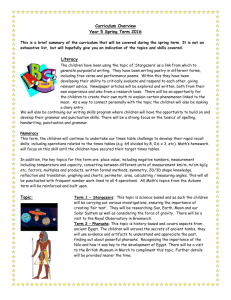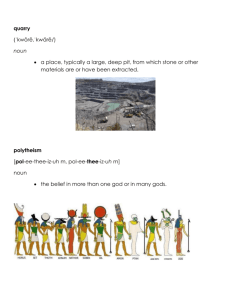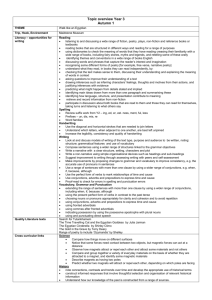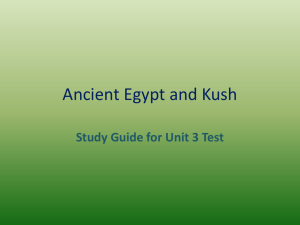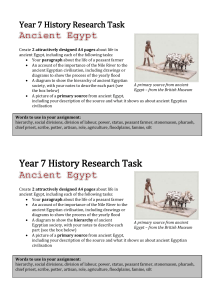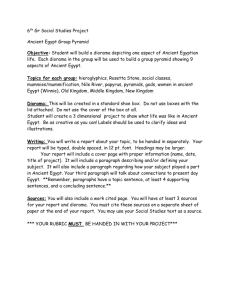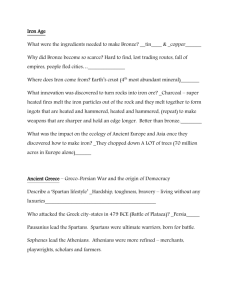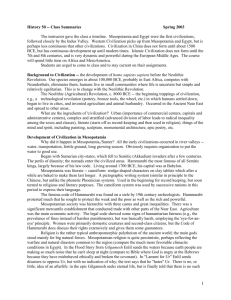Unit 2 Vocabulary: ANCIENT EGYPT/NEAR EAST
advertisement
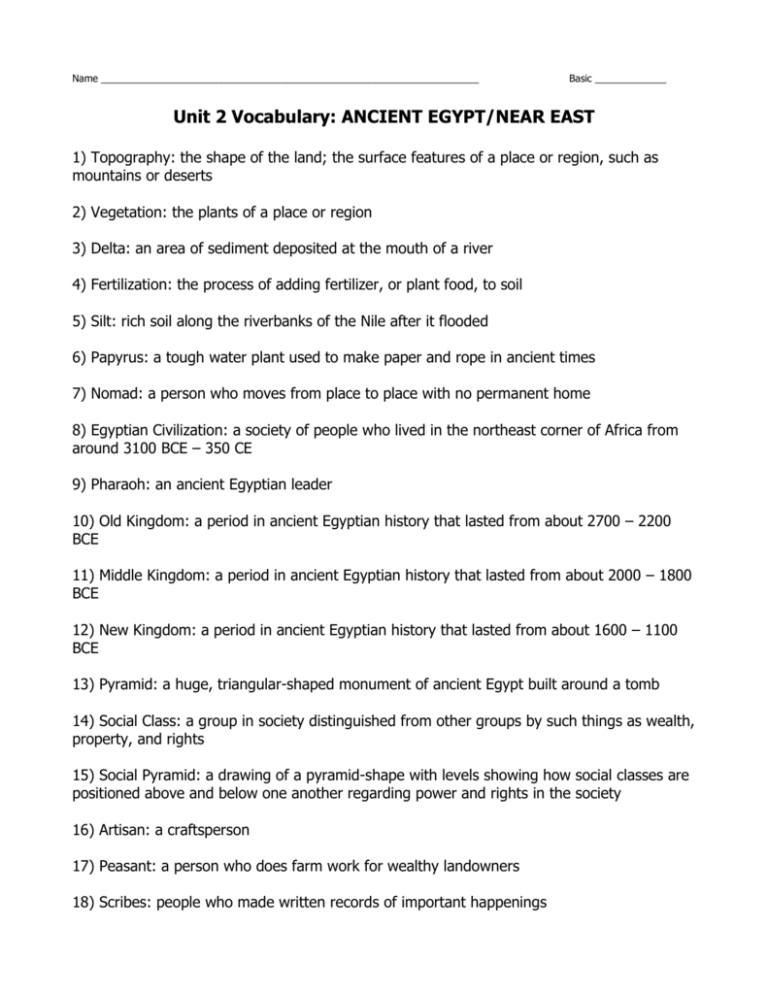
Name _____________________________________________________________________ Basic _____________ Unit 2 Vocabulary: ANCIENT EGYPT/NEAR EAST 1) Topography: the shape of the land; the surface features of a place or region, such as mountains or deserts 2) Vegetation: the plants of a place or region 3) Delta: an area of sediment deposited at the mouth of a river 4) Fertilization: the process of adding fertilizer, or plant food, to soil 5) Silt: rich soil along the riverbanks of the Nile after it flooded 6) Papyrus: a tough water plant used to make paper and rope in ancient times 7) Nomad: a person who moves from place to place with no permanent home 8) Egyptian Civilization: a society of people who lived in the northeast corner of Africa from around 3100 BCE – 350 CE 9) Pharaoh: an ancient Egyptian leader 10) Old Kingdom: a period in ancient Egyptian history that lasted from about 2700 – 2200 BCE 11) Middle Kingdom: a period in ancient Egyptian history that lasted from about 2000 – 1800 BCE 12) New Kingdom: a period in ancient Egyptian history that lasted from about 1600 – 1100 BCE 13) Pyramid: a huge, triangular-shaped monument of ancient Egypt built around a tomb 14) Social Class: a group in society distinguished from other groups by such things as wealth, property, and rights 15) Social Pyramid: a drawing of a pyramid-shape with levels showing how social classes are positioned above and below one another regarding power and rights in the society 16) Artisan: a craftsperson 17) Peasant: a person who does farm work for wealthy landowners 18) Scribes: people who made written records of important happenings 19) Vizier: a high-ranking government official 20) Alliance: an agreement between nations to work together for common interests 21) Sanctuary: holy rooms in temples where statues of gods were housed 22) Embalm: to treat a dead body with preservatives to prevent it from decaying 23) Sarcophagus: a large stone coffin 24) Hieroglyphics: a system of writing developed in Egypt around 3000 BCE 25) Hieroglyph: a symbol used in hieroglyphics 26) Census: an official count of the population or number of people living in an area 27) Famine: a severe shortage of food 28) Kush Civilization: a society of people who lived along the Nile, south of Egypt in Nubia, from about 2000 BCE – 350 CE 29) Archer: a person who shoots with a bow and arrow 30) Dynasty: a family or group that rules for several generations 31) Kandake: a powerful female leader who co-ruled Kush with her husband and sons 32) Treaty: a written agreement by which two or more states agree to be peaceful 33) Hebrew Civilization: a society of people (ancient Israelites) who lived to the northeast of Egypt, in Canaan, from about 1800 BCE – 70 CE 34) Judaism: a major world religion that was founded by the Hebrews 35) Torah: “God’s teaching”; the first five books of the Jewish Bible 36) Covenant: an agreement or promise 37) Descendant: a daughter or son, granddaughter or grandson, etc. 38) Sacrifice: a gift or an animal for slaughter as a way to honor the gods 39) Prophet: a person who speaks or interprets for God to other people 40) Plague: a terrible disaster affecting many people and thought to be sent by God as a punishment 41) Exodus: “departure”; the escape of the Hebrews from Egyptian slavery 42) Ten Commandments: the ten laws said to be given to Moses by God 43) Sabbath: the seventh day of the week to be used for rest and worship according to one of the Ten Commandments 44) Moral Law: rules about the right way to live 45) Ark of the Covenant: the chest containing the stone tablets with Ten Commandments written on them, that the Hebrews carried with them during their wanderings after their flight from Egypt 46) Jewish Diaspora: the scattering of the Jewish people to many lands 47) Jewish Beliefs: the basis of Judaism, such as the belief in one God and the importance of following the Ten Commandments 48) Monotheism: the belief that there is only one God 49) Rabbi: a religious teacher who studies and teaches others about Jewish law 50) Talmud: the collection of ancient Jewish writings that interpret the law of the Torah 51) Execute: to kill 52) Gentile: non-Jewish 53) Synagogue: a place of Jewish worship
